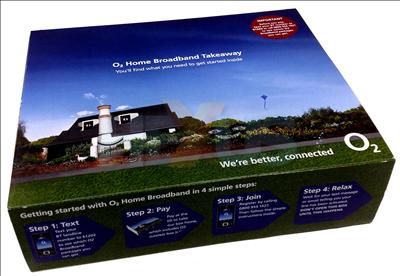Service works
On 31st July, mobile phone operator O2 announced it was giving away home broadband for a year with mobile broadband subscriptions. This marked a further stepping up of activity by this late entrant to the UK broadband market.
Since O2 first offered home broadband last year it has been gaining customers rapidly and, perhaps more importantly, developing a reputation for good service. In a market that has become highly commoditised over the past couple of years this could be a crucial differentiator for O2 so we speak exclusively to its UK PR manager Nick Wilkins to find out more about O2’s broadband strategy.
“O2 launched home broadband last October and then launched mobile broadband in May,” says Wilkins. “We were obviously not first to market either time. However, we were the first to offer home and mobile broadband together and automatic subscription to commercial Wi-Fi hotspots such as The Cloud.”
The UK broadband has undergone a period of rapid expansion in the past few years, with ‘free’ broadband offers enticing new entrants to the market. Some major issues have arisen concerning the delivery and quality of these broadband services.
This tends to happen when a product or service becomes commoditised; people buy solely on price and then get all outraged when paying less results in inferior quality. Examples abound, the most publicised of which are probably ‘no frills’ airlines, and there’s no reason why broadband should be any different.
"Things like the BBC iPlayer mean that people now want higher bandwidth with higher download limits."Bolton etailer Scan shared its concerns for etailing with HEXUS recently and they centred around excessive emphasis on price-cutting. Now, it seems, O2 has come to the same conclusion about the broadband market.
“The UK broadband market is maturing, with close to 60 percent penetration,” says Wilkins. “In previous years a lot of the uptake was driven by ‘free’ broadband offers, but now people are starting to appreciate the benefits of higher quality services. Things like the BBC iPlayer mean that people now want higher bandwidth with higher download limits.”










